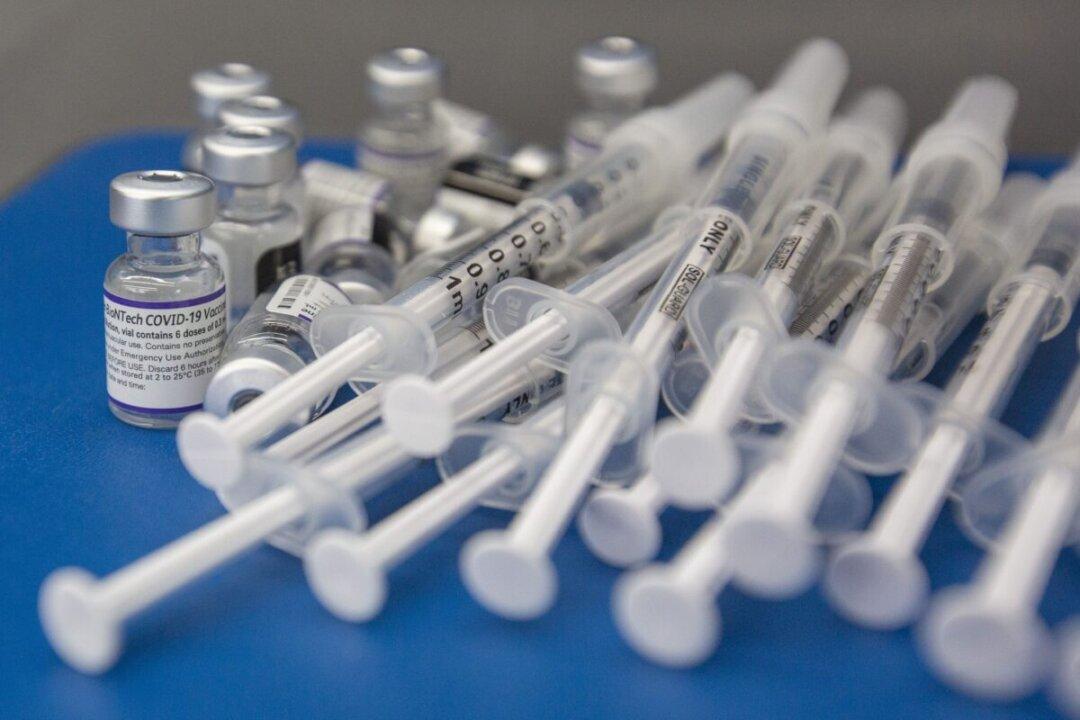A team of experts from different fields, including medical statisticians and a medical anthropologist, has rebutted a recent article published in a Canadian medical journal that defends the use of COVID-19 vaccine mandates by claiming that a mathematical model shows unvaccinated people increase the risk of infection among the vaccinated.
“It is especially problematic that a modelling paper so detached from reality contains such explicit and strong condemnation of ‘the unvaccinated,’” said James Doidge, an epidemiologist and senior medical statistician with the UK’s Intensive Care National Audit & Research Centre, and his fellow contributors in a reply posted on the Canadian Medical Association Journal (CMAJ) website on April 28.





